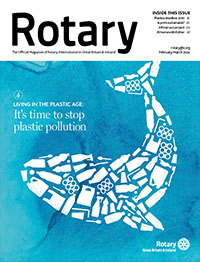Most mornings, the serenity of the Solent provides an idyllic backdrop for my gentle runs along its scenic coastal paths.
Huge container ships ply their way in and out of Southampton docks, jostling with an assortment of sailing boats, including the Isle of Wight ferries, on this busiest of waterways.
Whatever the weather, as dawn is breaking, this is running heaven.
And yet, as I wend my way along the shoreline, there is the inescapable sight of an environmental disaster which is facing this planet.
Tiny pieces of plastic, bottle tops, fishing gear and PVC rope are often washed up on the stony shoreline. Occasionally you see a few spent shotgun cartridges.
As I wend my way along the shoreline, there is the inescapable sight of an environmental disaster which is facing this planet.”
Plastic bags of every description can be found partially buried in the mud alongside a buoy or plastic drum.
Picnickers leave a range of debris including crisp, sandwich and sweet wrappers, drinks bottles, and plastic cups, sometimes colonised by seaweed.
The other morning, I spotted a pair of old underpants and fingerless gloves lying on the beach – now that was a very odd combination!
It is clear something has to be done before the damage done to our planet is beyond repair.
The environment is not new to Rotary.
There are many examples of clubs already working already on environmental projects, such as supporting sustainable living by building school vegetable gardens and compost centres.
It is clear something has to be done before the damage done to our planet is beyond repair.”
We have seen Rotarians restoring river banks and forests by planting trees, shrubs and grasses, cleaning up rivers by collecting litter from rivers, creeks and roadsides.
Rotary has encouraged the use of renewable energy through installing solar units in remote villages, as well as reducing waste to landfill through selling used clothes and goods in Rotary charity shops.
The fact that the environment will become Rotary’s seventh area of focus this July legitimises past environment projects and inspires us to take on new ones.
It will allow Rotary clubs to apply for Global Grants for environmental projects, supported financially by The Rotary Foundation.
But to my mind, the environment is a game-changer for Rotary and its future.
There are many examples of clubs already working already on environmental projects, such as supporting sustainable living by building school vegetable gardens and compost centres.”
This dawned on me while interviewing Gert-Jan van Dommelen, the Dutch co-founder of EndPlasticSoup, when he spoke about the impact the action group was having worldwide.
How youngsters at his local secondary school, just outside of Amsterdam, are chiding their parents to stop smoking.
Not just because they fear the damage to their parents’ health, but also fearing the health of local wildlife picking up discarded cigarette butts; one of the most pervasive forms of plastic pollution.
The aim of EndPlasticSoup is ridding the world of plastic waste by 2050. Their number one target is single-use plastics, such as food wrappers and bags.
We often talk about Rotary remaining relevant, making our amazing organisation appealing for the next generation.
This younger generation are activists. They are environmentally-aware, conscious how they want to protect their planet.
But let’s not kid ourselves. Caring for the environment is inter-generational too. It affects all of us and is tangible.
Surely, supporting the environment will be a win-win; for Rotary and the environment.
What are we waiting for?



























































